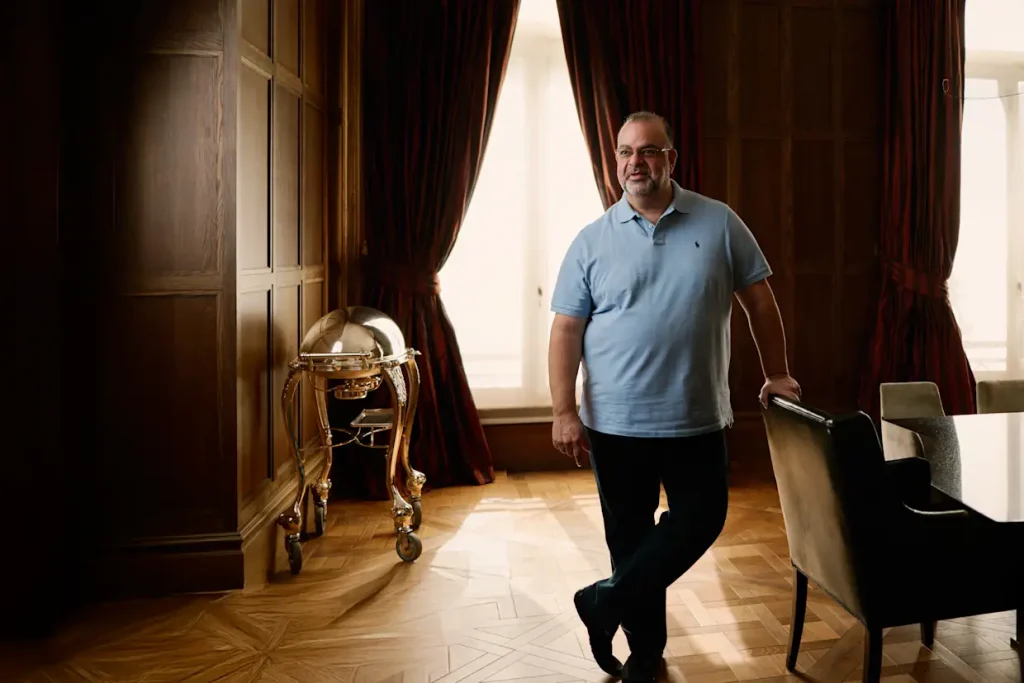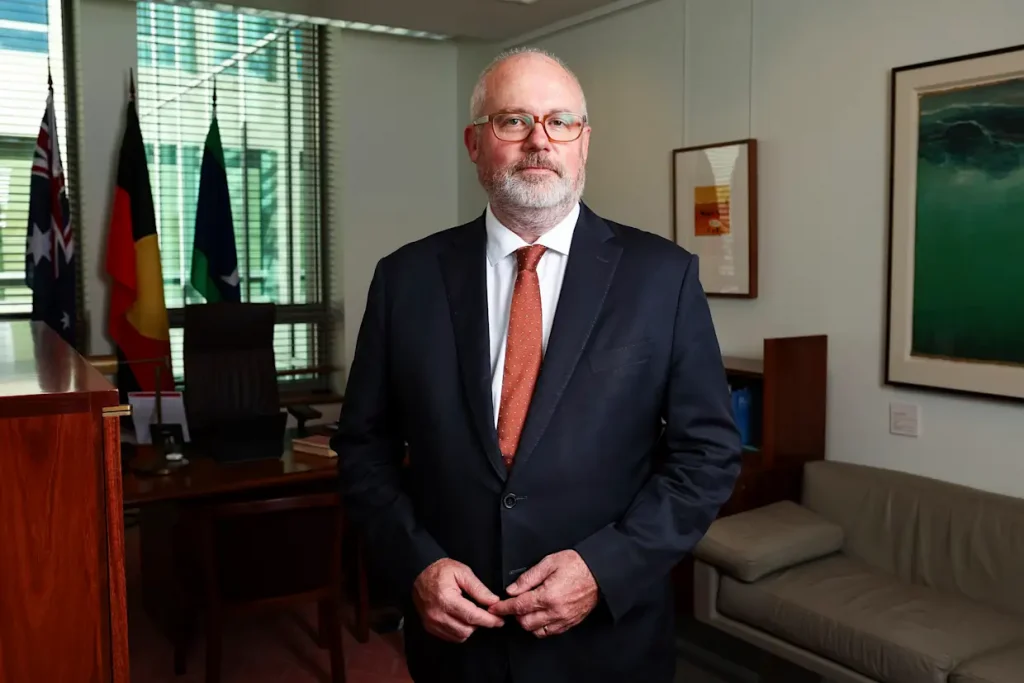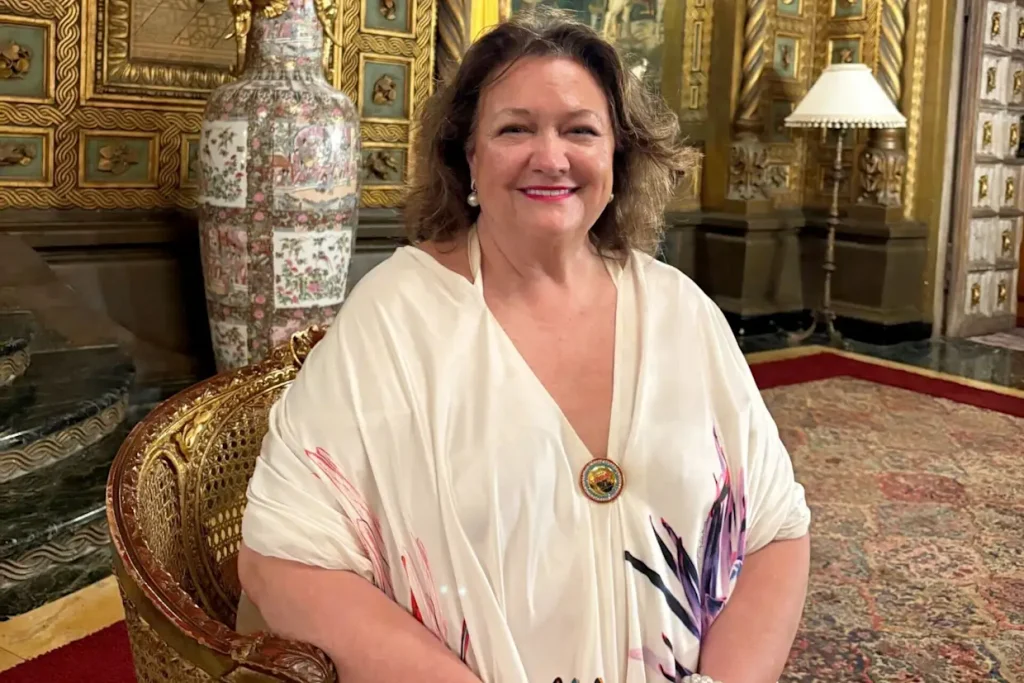
Article by Tess Bennett and Yolanda Redrup, courtesy of Financial Review
29.05.2025
Labor’s new Minister for Industry and Science Tim Ayres has told critics of the government’s super tax policy they can afford to manage the impact on their wealth, as some of Australia’s richest people including Gina Rinehart and Jack Cowin warned it will stymie investment.
People with more than $3 million in superannuation are considering accelerating estate planning, winding up their self-managed funds, giving money to their adult children, and moving assets like farms and offices out of super and into corporate structures before the tax is due to take effect on July 1.

After its landslide election victory Labor expects to legislate the tax with the support of the Greens in the Senate. However, there is growing opposition to the plan to double the tax on superannuation balances above $3 million to 30 per cent, including taxing unrealised gains on assets like shares, businesses and property held in super.
Phoenix Lithium founder Nick Wakim, who is worth $1.2 billion, said taxing unrealised gains was “fundamentally abhorrent”.
“This is a myopic thesis as changing key taxation rules will have all Australians questioning whether to start investing or keep investing in superannuation. The negative effects of this are obvious,” Wakim said.
“It’s hard to convince financially illiterate ideologues that you can never tax your way to prosperity.”
But Ayres, who replaced Ed Husic as Industry Minister in the Albanese government’s second term, said he supported the policy, which was a “modest change” that would improve the taxing of superannuation.
“I will have my shoulder behind the wheel in the Senate and in the Parliament to make sure it gets passed quickly,” he said.

“There’s not many Australians who have a superannuation account balance over $3 million and [those who do] can afford to deal with this. People with those resources will get advice, and they don’t need advice from me about how to manage their tax affairs.
“Most Australians would see it as a fair result.”
While venture capital funds have warned the plan to tax unrealised gains will discourage investment in start-ups, Ayres said there was “no evidence” it would.
The country’s 200 richest people in 2025 have individual fortunes estimated at more than $747 million each and are prime targets for the new tax.
The average age of people on this year’s Rich List is now 67, which means most are old enough to have bought assets and accumulated large superannuation balances before the caps on contributions were introduced in 2007.
Fast-food mogul Jack Cowin, who is ranked 33rd on the 2025 Rich List with an estimated net worth of $4.7 billion, is concerned taxation of unrealised gains could be extended beyond superannuation.

“The biggest fallacy with the proposed super tax is taxing unrealised gains. [I’m] not sure where this brain wave originated,” he said.
“The biggest danger for a high spending government is the threat that this practice gets extended onto other investments and could even include housing, in search of funding.”
Sam Beck, the managing director of Beck Property Group and the son of Max Beck (who is ranked 108th on the Rich List with an estimated net worth of $1.2 billion in 2025), said the super tax failed the pub test.
Full coverage: Labor’s super tax
- Super tax ‘shows Chalmers ignoring history’
- Opinion | Why Jim Chalmers will have his ‘Wayne Swan moment’
- Tax hike on me is ‘fair’: industry super godfather
- How much extra tax will I pay if my super balance is $3.1m?
- Super tax to hit more workers over time, Labor concedes
“I think any tax on unrealised gains full stop is ludicrous. It’s going to give the valuers a job really,” he said.
“Put yourself in the position of someone who is retired, they’ll be on some type of fixed income. For them to come up with money to try and pay a tax on something that’s unplanned for is totally unfair.”
Arnold Bloch Leibler partner Christine Fleer, whose firm advises more than 30 per cent of the 50 wealthiest Australians, said if the tax on unrealised gains proceeds, it would trigger “massive reorganisations” of her clients’ wealth.
She said it would also be a huge “conceptual change” to the tax system. “It also brings in a real administrative burden on what valuation processes the ATO [Australian Taxation Office] will require,” Fleer said.
Market valuations of assets are already required in superannuation funds, but typically if the auditor is comfortable with the valuation, that has been sufficient. Fleer said the process for valuing shares in a start-up would need to be better defined if the new super tax policy took effect.
Australia’s richest person, Gina Rinehart said while the new super tax could be seen as a positive in “some circles”, taxing unrealised wealth had prompted the rich to flee other countries.

“Will the money stay in their super fund to be so extra taxed? Similar tax schemes in Norway and France led to billions in capital fleeing those economies,” said Rinehart, who is a known Liberal Party supporter and donor.
“This doesn’t seem a very well-thought-out scheme, to get more tax revenue, to me.”
Reflecting on the Coalition’s resounding election defeat, Rinehart said the Liberals needed to shift away from factional politics, abandon polling for policies, and present a united front.
“[They need to] aim instead to lead Australia, with honesty in their vision and in their policies, adopting 20/20 clear vision, untainted by ideology, with common-sense policies to move Australia away from declining investment and declining living standards, and away from inadequate and unreliable electricity,” she said.
“Policies such as cutting the duplication of government tape between federal and state governments, which would help businesses and revenue, creating productive jobs, dropping or deleting essential industries and organisations from the Paris Accord, [and] cutting government wastage, to enable tax cuts.”
